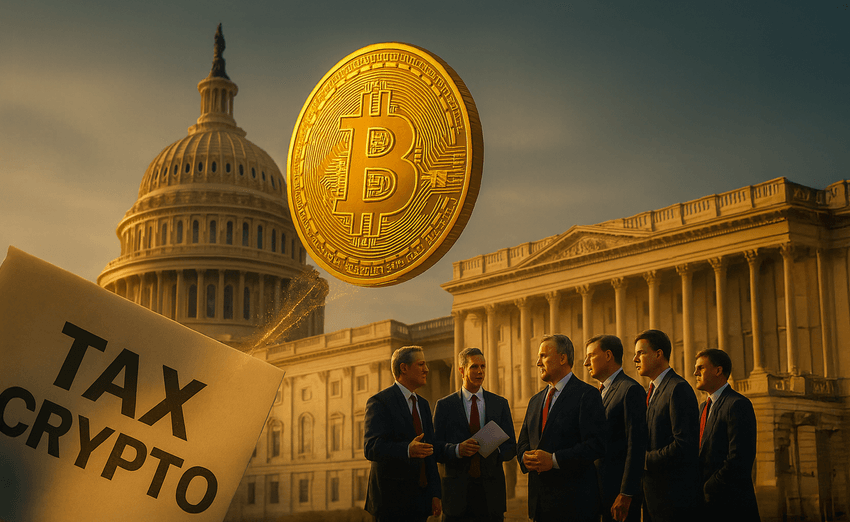A New Push to Bring Bitcoin Into the U.S. Tax System
The United States may soon let Americans pay federal taxes in Bitcoin, thanks to a bold new proposal from Congressman Warren Davidson. The legislation, titled the Bitcoin For America Act, outlines a framework that would allow taxpayers to send BTC directly to the U.S. Treasury - without triggering capital gains taxes. Davidson describes the proposal as a modernization of federal payment rails to reflect the rising role of digital assets in the U.S. economy.
According to the bill, Bitcoin sent to the Treasury would not be immediately converted to USD. Instead, the BTC would flow into a newly created Strategic Bitcoin Reserve, which Davidson argues could become a powerful national asset anchored in Bitcoin’s fixed supply.
I’m introducing the Bitcoin for America Act to strengthen long-term national financial resilience and position the U.S. at the forefront of global asset leadership!
— Rep. Warren Davidson (@Rep_Davidson) November 20, 2025
This marks an important step forward in embracing the innovation that millions of Americans use every day. pic.twitter.com/2JSlaJSVkc
I’m introducing the Bitcoin for America Act to strengthen long-term national financial resilience and position the U.S. at the forefront of global asset leadership!
— Rep. Warren Davidson (@Rep_Davidson) November 20, 2025
This marks an important step forward in embracing the innovation that millions of Americans use every day. pic.twitter.com/2JSlaJSVkc
No Capital Gains Trigger and a New Federal Reserve Structure
One of the most important elements of the bill is its tax treatment. Under the proposal, sending BTC to pay federal obligations would not count as a taxable event, meaning no capital gains would be triggered. The Treasury would simply record the payment at the fair market value of Bitcoin at the time of the transaction, similar to how foreign-currency remittances are handled today
Davidson emphasizes that Bitcoin used for taxes would not be liquidated. Instead, it would accumulate in the Strategic Bitcoin Reserve, a federally held store of BTC designed to strengthen long-term financial planning. The reserve is meant to act as a non-inflationary asset, serving as a hedge against traditional monetary erosion. Davidson argues that Bitcoin’s fixed supply could help stabilize the federal balance sheet over time, noting that other countries such as Russia, China, and Taiwan are already expanding their sovereign Bitcoin holdings.
He even suggested that BTC acquired since 2012 could have been used to pay down portions of the nation’s $38 trillion debt.
A Voluntary System - and a Step Toward Financial Modernization
The Bitcoin tax payment system outlined in the bill would be completely optional. Each taxpayer could decide annually whether to settle federal liabilities using Bitcoin or stick to traditional fiat payments. But Davidson frames the initiative as part of a broader evolution: opening federal structures to permissionless digital money and increasing financial access for those who lack traditional banking options.
A Federal Vision Built Around a New Reserve Asset
Davidson’s proposal reflects a larger structural shift in how the government views digital assets. The legislation paints Bitcoin not just as a payment method but as a new strategic asset class that could strengthen federal finances, reduce dependence on debt, and modernize long-standing fiscal systems. By integrating Bitcoin into both tax infrastructure and federal reserves, the bill aims to align the government more closely with the growing digital economy.



